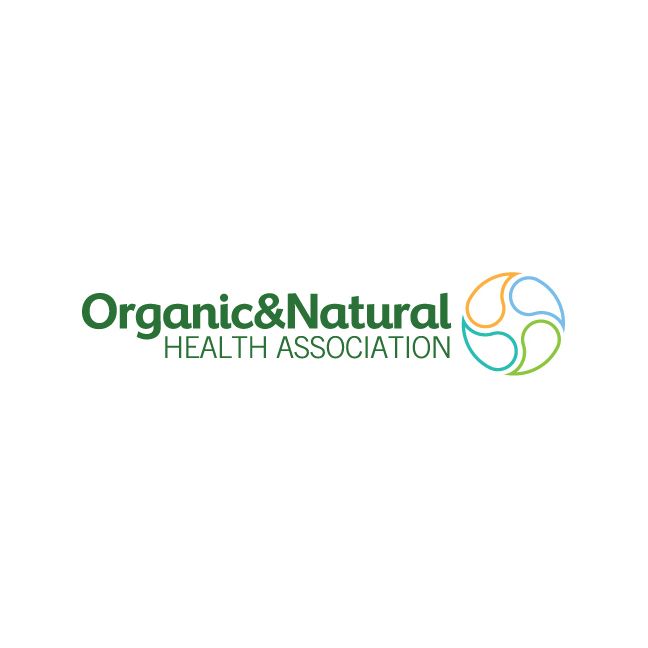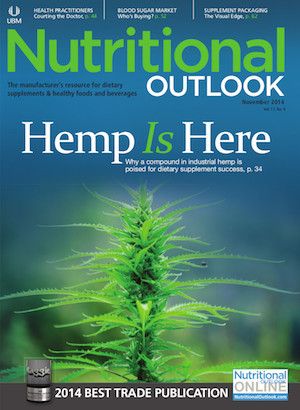Creating a Definition for “Natural” Is Just One of the Things We Plan to Do, New Group Says
The Organic and Natural Health Association will meet the industry’s acquaintance at next week's SupplySide West.

A brand-new group is ready to take on some of the industry’s biggest issues. Formed this summer, the Organic and Natural Health Association (ONHA; Washington, DC) will meet the industry’s acquaintance by way of a VendorBrief presentation at next week’s SupplySide West trade show in Las Vegas, NV.
The association is so new that its website isn’t even live yet. (The site, www.organicandnatural.org, goes live October 7.) But that hasn’t stopped the group from setting ambitious goals right out the gate. First up? Establishing a formal definition for the word natural for a range of industries, from food and supplements to cosmetics and pet food.
As most industry members are aware, a definition for natural is sorely needed. Lack of a formal FDA regulatory definition for natural has created lots of confusion (and jadedness) among companies and consumers over “natural” and “all natural” claims-and lots of room for class-action suits over whether or not companies use the term misleadingly. Read more Nutritional Outlook discussion on this topic here and here.
Why does ONHA believe it can succeed where others have failed? According to CEO Karen Howard, it’s because the association aims to pick up the process where others have already laid groundwork. Howard emphasizes that the intent is not to start from scratch, but rather to build on the progress other groups have made already in addressing issues key to the natural and organic industry. “The process is one that will be very inclusive,” she adds. “As we create our standards-and we can use natural as an example-we’ll be looking to the organizations with this expertise….[T]hat is our intent: to collaborate with all of these organizations who have done this work, so we’re an added-value instead of added-work.”
Howard says ONHA is targeting its membership with the mindset of including the views of “consumer-based associations”-such as nonprofits groups representing consumers-as well as corporations and retailers. “That’s what make us unique in many ways,” Howard says. “We’re actually bringing to the board and to the membership consumer associations and corporate members to collaborate on these new standards and research efforts. The consumer organizations will be considered our conduit into the consumer world.”
ONHA also aims to create its own third-party certification program and certification seal. When asked about what would distinguish ONHA’s certification program from others-the Natural Product Association’s Natural Seal for home-care and personal-care products comes to mind first-Howard says this:
Organic and Natural’s seals will incorporate much more than a review of ingredients and their ability to stand as natural. We believe natural must also reflect the impact of process and manufacturing agents, as well as incorporate essential elements relating to sustainability. After all, the thrust of our organizational work is to support change in our food and goods supply that benefits both the health of families and the health of the planet. In addition, the highly unique collaboration with consumers in the development of the standards ensures that adaption of the best practices […] That said, we would likely recognize highly tuned and credible standards programs of partner organizations. Our goal is not to duplicate current efforts but rather to embrace and include the great work already completed as we work to build a definition of natural that is inclusive.
Regarding the natural definition, Howard says ONHA’s would also take into consideration corporate responsibility programs “all the way back down to what are the grazing practices for dairy and beef and poultry that we would want to include in our definition of natural or naturally fed that are sustainable agricultural practices […] and even for things like algae, what are your water practices? It could even include packaging.” Also, she adds, “there could even be levels of natural, so that will be a conversation that the [ONHA] board will also engage in.”
And should FDA one day get around to establishing that long-desired definition for natural, Howard says that “in a voluntary regulatory paradigm that we’re creating, where you’re immediately engaging consumers in your process and therefore their commitment to a seal, you’ve already established the credibility. The design is that the credibility will be so high that any government effort that does result, congressional or regulatory, obviously our goal would be for them to at least consider the standard that has become most known.”
As for organic, Howard says ONHA’s goal is not to compete with the USDA’s National Organic Program (“I don’t know that you can improve upon that definition at all,” she says) or any type of independent certification program, but that the association will instead play a “supportive” role in any conversations around organic. “Should there be issues with the organic label that we could be supportive of across industry, we would certainly be there for that,” she says.
A final and crucial component of ONHA’s mission, Howard says, is to support research. “It may be that our member companies actually fund research to evaluate a claim on some particular product that we believe would be useful to consumers, or to clarify issues that have been lacking in research so that we’re being supportive of consumer needs…”
Talking to Howard, it’s clear that a lot still needs to be flushed out, because the organization is just at the beginning of identifying needs, goals, and charting the course to get there. “As we move into each of these complex conversations, we’re going to be reaching out to experts in the industry, so we’ll be talking to the people who are really at the forefront of [for instance] that sustainability conversation,” she says. “Each of these components is very complex […] It is premature to say how this will all flesh out in this collaborative process…”
At SupplySide West, ONHA will be very transparent with attendees about the fact that it is still very early on in the process. The group plans to open the conversation to all types of questions-including, Howard says, whether another industry seal is needed and may confuse consumers. “This will really be the launch of our first public conversation about how we’re going to do the work,” she says. “We’re doing that to show the industry how this will look and feel for those who want to participate.”
The bottom line, she says, is that clarity is sorely needed for consumers and industry, alike. “The data is showing that consumers are being so misled by the claim of natural that in some cases they seem to believe that natural is the same as organic and that it’s just less expensive because companies haven’t gone through the certification process. To that end, I think people...seeking a healthy alternative...are hoping to buy those kinds of goods, and that’s really where we want to come in and be supportive of that.”
Jennifer Grebow
Editor-in-Chief
Nutritional Outlook magazine jennifer.grebow@ubm.com

HHS announces restructuring plans to consolidate divisions and downsize workforce
Published: March 27th 2025 | Updated: March 27th 2025According to the announcement, the restructuring will save taxpayers $1.8 billion per year by reducing the workforce by 10,000 full-time employees and consolidating the department’s 28 divisions into 15 new divisions.
















